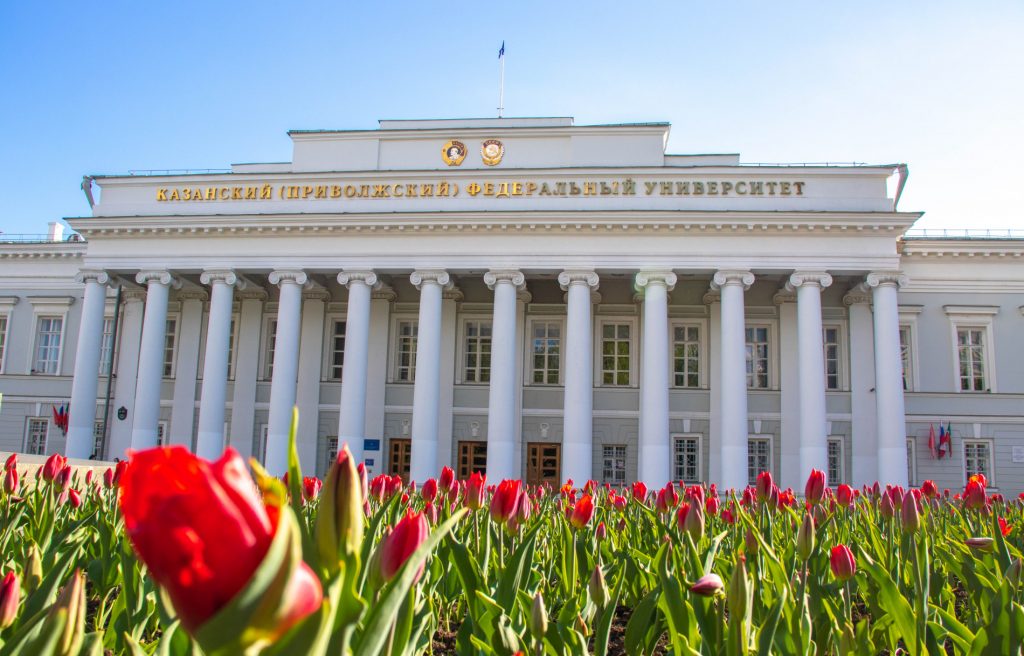KFU offers new majors this year

The admission campaign started in Russian universities on 20 June.
A full-time bachelor’s program ‘Public Policy and Social Sciences (Management of Social and Political Communications)’ lasts 4 years.
“The program is interdisciplinary, and we have tried to shape it in such a way that our graduates receive comprehensive training in political science, economics, sociology, and other social sciences. The competencies obtained as a result of the training will allow graduates to carry out effective communications with government, commercial, public structures, and organizations,” comments Natalya Shibanova, Chair of the Department of Conflict Studies. “Public policy is first of all a form of dialogue between state authorities, business, private sector, citizens, various professional and social organizations. Therefore, those who have passed the training will be in demand in the structures of state, representative and municipal authorities, as well as in business. The program assumes deep mastering of communication technologies and will allow graduates to be realized as GR managers.”
The same department is in charge of a new ‘Communication Technologies and Mediation’ 2-year master’s program. The educational program, adds Shibanova, promises to be rich, and the knowledge and skills acquired during the course will be useful to everyone regardless of the sphere of activity, because the right communication strategy is already a guarantee of success in any business.
“Nowadays the ability to build communication is the most important skill. Many people have problems with its realization, and we will familiarize undergraduates with effective communication technologies. The trainees will also familiarize themselves with the process of negotiation between different participants: government officials, employees of enterprises, business partners, parents and children. Mediation, a method of negotiation with the participation of a mediator, is becoming increasingly in demand in Russia. We will also train our students in this technology,” she opines.
The Institute of International Relations was also affected by the innovations. Within the framework of the admission campaign the Institute will also present two new programs. Applicants – graduates of schools and institutions of secondary vocational education – can apply for the bachelor’s program ‘Arts and Humanities (Sociocultural Projects in Diplomacy)’. The course provides full-time study for 4 years.
“The program is related to the ever-increasing technological outfit of humanitarian knowledge and the need to train specialists who deal in-depth with this issue. The issues of human security in the light of those events that are happening now in the world, and the understanding of the need to objectively and reliably reflect the issues related to society, culture and assessment of the position of our country and the world community on the desire to preserve the traditions of human capital, come to the fore. The humanitarian sphere is called upon to solve these issues. And such programs allow us to realize this for the purpose of sustainable and stable development of our society,” says Airat Sitdikov, Dean of the Higher School of International Relations and World History.
Those who already have a bachelor’s degree can try themselves in new master’s programs, History of Arts, and choosing one of the specializations.. The ‘Art History of the Turkic-Muslim World’ is implemented with the assistance of Rais (Governor) and the Government of the Republic of Tatarstan, adds Sitdikov. There is a targeted admission quota with compulsory employment after graduation. Graduates of the program will be able to engage in teaching and research activities, act as experts and consultants in private and public organizations, work in the media, in cultural and educational and publishing institutions.
“In recent years, the role of the Muslim community and the Turkic world has steadily become more prominent. Undoubtedly, there is a need to train specialists who can gain an advantageous position for our country,” emphasizes the Dean.
The ‘Restoration of Historical and Cultural Heritage’ master’s program consists of theoretical and practical aspects. The theory includes lectures on restoration methodology, where students will study the problems of examination of works of art and historical monuments, discuss the possible options of preservation and the permissible measure of restoration intervention. After practicing their skills on models, students will proceed to the restoration of real archaeological and ethnographic objects under the guidance of invited experts from the All-Russian Art Research and Restoration Center (Moscow), the Peter the Great Museum of Anthropology and Ethnography (Kunstkamera), the State Hermitage Museum (St. Petersburg) and local experts. The program is in a distance format.

